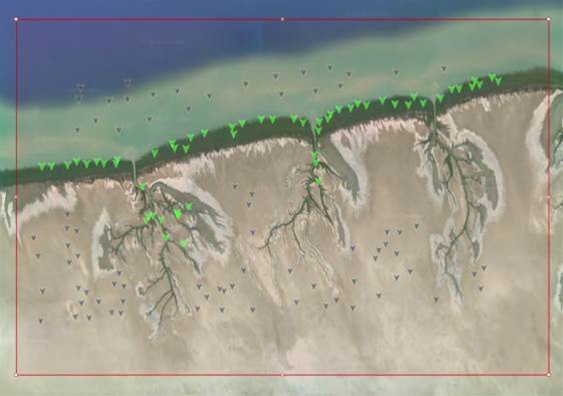The University of New South Wales (UNSW) has developed a free mapping tool, powered by Google Earth and NASA, that shaves weeks from the time taken to monitor and assess changes to landscapes and ecosystems.

The Remap program uses machine learning to comb through NASA’s Landsat imagery, which has been updated fortnightly since the 1970s, combining it with climate data to track large scale changes in different ecosystems.
Dr Nicholas Murray from UNSW’s School of Biological Earth and Environmental Sciences created the app to harness the potential of remote sensing data in supporting land conservation efforts and mapping ecosystem locss.
Murray told iTnews that although conservationists were the users he initially saw using the tool, it does have the potential to monitor the environmental impact of a variety of industries.
While the terms and conditions of Google Earth Engine mean that the platform can’t be used for “sustained commercial purposes”, Murray said Remap could still be used to assess environmental impacts of different operations or whether land remediation efforts are proving successful.
The app was designed to remove most of the technical challenges of compiling and analysing raw satellite images, opening up the possibilities for students, farmers, or small-scale organisations and governments lacking in IT power.
Users train Remap to classify different ecosystems by identifying different features in Google Earth, or by uploading their own field data.
From there, the app goes can recognise different features of an ecosystem within a selected area and returns results on how they’ve changed over time within minutes.
Remap has already been put to use internationally by the Wildlife Conservation Society to map Myanmar’s ecosystems.
The International Union for Conservation of Nature lists Myanmar as a strategic country for biodiversity conservation but lacking in sufficient data to identify critically endangered areas.
“We are pleased to be collaborating with Dr Murray and his team and using Remap in our efforts protecting and educating the public about Myanmar’s ecosystems,” said Dr Hedley Grantham from the Wildlife Conservation Society.
“Myanmar is host to a rich biodiversity unique to south-east Asia but there is currently little data to guide conservation efforts.
“The Remap app will be an important tool to provide a comprehensive assessment of vulnerable ecosystems to help the Wildlife Conservation Society’s mission in biodiversity monitoring and protection.”


_(33).jpg&h=140&w=231&c=1&s=0)








 iTnews Benchmark Awards 2026
iTnews Benchmark Awards 2026
 iTnews Executive Retreat - Security Leaders Edition
iTnews Executive Retreat - Security Leaders Edition
 iTnews Cloud Covered Breakfast Summit
iTnews Cloud Covered Breakfast Summit
 The 2026 iAwards
The 2026 iAwards












_(1).jpg&h=140&w=231&c=1&s=0)



